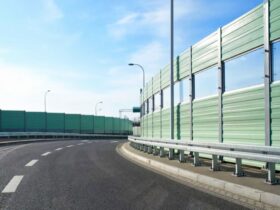Stainless steel is a steel alloy that contains only trace amounts of chromium. Its distinct advantages make it a powerful factor in the metal business, resulting in growing demand. According to Statista, the construction sector accounts for 44% of stainless steel demand in the United States as of 2018. The automobile, energy, and industrial and equipment manufacturing industries also drove demand. Steel suppliers frequently attribute this strong demand to the material’s outstanding characteristics. The following are the primary advantages of working with stainless steel. Check out bolting steel.
Value
Given the benefits of stainless steel, it’s safe to assume that this metal provides good value for money. In addition to all of its other advantages, the longevity of this material ensures that it will outlast other solutions. As a result, stainless steel providers and users can expect a nearly 100% return on investment.
Strength And Impact Resistance
Stainless steel is a robust and long-lasting material. This is due to stainless steel’s capacity to self-repair. Because of the chromium in this metal, a thin coating of chromium oxide film can form on the surface. When stainless steel is injured, these layers start to repair it. While this does not guarantee that serious damage will be removed, surface scratches will most likely fade on their own. Check out 605m36t.
Appearance Aesthetics
Because of the metal’s look, interior designers and homeowners prefer stainless steel objects for their projects. It’s stylish, with a traditional finish and modern accents. It’s also available in various finishes, allowing for even more personalization. Mill finishes are used to make the steel more visually pleasing after it has been rolled to the correct shape, thickness, and dimension. Stainless steel suppliers have concentrated on manufacturing utensils and stainless steel appliances that increase the beauty and functionality of a home.
Sustainability
Manufacturers are seeking for ways to employ sustainable materials as more people become environmentally concerned. One of the primary reasons stainless steel is at the top of the list is its recycling capacity. It can be recycled once it has served its initial use. Many stainless steel goods are created from recycled components. This reduces the need for mining rare materials, which are essential in the production of stainless steel. Check out en24t steel.
Hygiene
Have you ever wondered why laboratories, commercial kitchens, and most hospitals employ stainless steel furniture, appliances, and tools? Aside from being easy to clean, stainless steel is a very sanitary material. Its non-porous, smooth, and sheen-like surface makes dirt, filth, and bacteria difficult to accumulate on its surface. Stainless steel is a robust metal that can tolerate severe chemicals used when cleanliness is essential.
Corrosion Resistance
The ability of stainless steel to resist rust is the most prevalent reason many people prefer it over other metals. Because of the presence of chromium in this metal, it is resistant to the corrosive effects of chemicals and moisture. Lower-grade stainless steel can tolerate regular atmospheric corrosion, such as rain and humidity, whereas high-grade stainless steel may endure even harsher elements, such as chemical corrosion from chloride, acid, and alkali. In addition to chromium, components such as nickel, titanium, and molybdenum improve the corrosion resistance of stainless steel. This crucial property makes it the metal of choice for common applications worldwide.
Conclusion
Stainless steel is the ideal metal for making high-quality things, whether you operate in the construction, automotive, or manufacturing industries. Speak with a professional steel supplier to understand this metal and its qualities.








